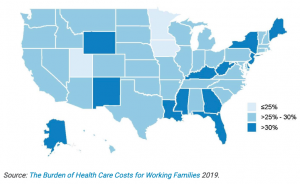in which I attempt to summarize recent research into workers’ comp and medical management and describe what it means for you.
Thanks to Elaine Goodman of WorkCompCentral, we learned this morning that folks who consumed marijuana during recovery from an injury were likely to use more opioids – for much longer – than individuals who did not use marijuana.
Implication – This calls into question the idea that marijuana use reduces opioid use.
California’s WC Insurance Rating Bureau reported premium rates declined again in 2018 – they are now down 24 percent over the last four years. The combined ratio is at a very solid 91 – BUT that’s a big jump from 2017’s 85.
Big driver – “Pharmaceutical costs per claim decreased by 69 percent from 2012 to 2017”
Implications –
- California reforms continue to reduce costs, but the it’s getting late at the party…
- Drug costs are dropping big time.
Predictions are the number of retail stores, and the jobs in those stores – are continuing to drop. 75,000 more stores will close by 2026 – that’s seven years from now. Sears, Payless Shoes, Gymboree, ToysRUs, RadioShack, GNC are among those closing stores.
Implication – fewer jobs, lots of empty storefronts, distressed malls mean less retail construction – and lower employment in retail.
Healthcare costs for working families “rose 27.7 percent from 2010 to 2016…while median household income rose 19.8 percent…” There’s a lot of variation among states. The percentages in the map indicate premiums as a percentage of family income.

Implication – Voting families are finding healthcare is increasingly unaffordable, ergo more focus on healthcare in the election.
Need to know what states’ work comp UR guidelines are? WCRI’s State Policies on Treatment Guidelines and UM‘s got you covered.
If I missed something – and I’m sure I did – please provide a BRIEF summary and a link in the comments section.
And happy April to all!



Joe, there is plenty of misinformation on marijuana based on anecdote and high hopes that it will lead us out of the opioid crisis. Not so, as the article that Elaine references points to. In January 2018, the American Journal of Psychiatry published research that concluded: “Cannabis use appears to increase rather than decrease the risk of developing nonmedical prescription opioid use and opioid use disorder.” [2018 January 01; 175(1): 47–53.] See also, “Endorsing cannabis as an opioid substitute is irresponsible” at [https://www.medscape.com/viewarticle/908991]. Granted, cannabis use may not cause overdose death, but it has many known adverse effects. It is also not effective in most types of pain (other than neuropathic). The solution to the opioid crisis is not found by creating other public health problems: cannabis use disorder, increased risk of motor vehicle collisions and mental health problems.
Thanks Marcos – well said and quite relevant.